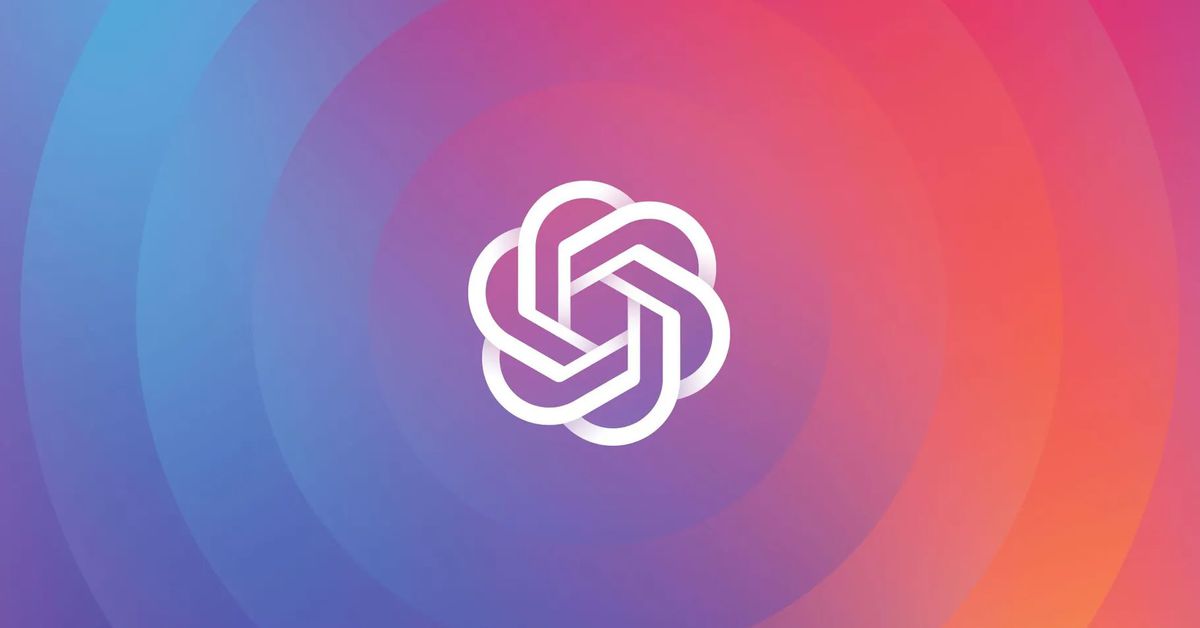OpenAI has publicly responded to a copyright lawsuit by The New York Times, calling the case “without merit” and saying it still hoped for a partnership with the media outlet.
In a blog post, OpenAI said the Times “is not telling the full story.” It took particular issue with claims that its ChatGPT AI tool reproduced Times stories verbatim, arguing that the Times had manipulated prompts to include regurgitated excerpts of articles. “Even when using such prompts, our models don’t typically behave the way The New York Times insinuates, which suggests they either instructed the model to regurgitate or cherry-picked their examples from many attempts,” OpenAI said.
OpenAI claims it’s attempted to reduce regurgitation from its large language models and that the Times refused to share examples of this reproduction before filing the lawsuit. It said the verbatim examples “appear to be from year-old articles that have proliferated on multiple third-party websites.” The company did admit that it took down a ChatGPT feature, called Browse, that unintentionally reproduced content.
The advances in LLMs and Diffusion models over the past couple of years are remarkable technological achievements that should be celebrated. We shouldn’t be stifling scientific progress in the name of protecting intellectual property, we should be keen to develop the next generation of systems that mitigate hallucination and achieve new capabilities, such as is proposed in Yann Lecun’s Autonomous Machine Intelligence concept.
I can sorta sympathise with those whose work is “stolen” for use as training data, but really whatever you put online in any form is fair game to be consumed by any kind of crawler or surveillance system, so if you don’t want that then don’t put your shit in the street. This “right” to be omitted from training datasets directly conflicts with our ability to progress a new frontier of science.
The actual problem is that all this work is undertaken by a cartel of companies with a stranglehold on compute power and resources to crawl and clean all that data. As with all natural monopolies (transportation, utilities, etc.) it should be undertaken for the public good, in such as way that we can all benefit from the profits.
And the millionth argument quibbling about whether LLMs are “truly intelligent” is a totally orthogonal philosophical tangent.
I understand your point, but disagree.
We tend to think of these models as agents or persons with a right to information. They “learn like we do” after all. I think the right way to see them is emulating machines.
A company buys an empty emulating machine and then puts in the type of information is would like to emulate or copy. Copyright prevents companies from doing this in the classic sense of direct emulation already.
LLM companies are trying to push the view that their emulating machines are different enough from previous methods of copying that they should be immune to copyright. They tend to also claim that their emulating machines are in some way learning rather than emulating, but this is tenuous at best and has not yet been proven in a meaningful sense.
I think you’ll see that if you only feed an LLM art or text from only one artist you will find that most of the output of the LLM is clearly copyright infringement if you tried to use it commercially. I personally don’t buy the argument that just because you’re mixing several artists or writers that it’s suddenly not infringement.
As far as science and progress, I don’t think that’s hampered by the view that these companies are clearly infringing on copyright. Copyright already has several relevant exemptions for educational and private use.
As far as “it’s on the internet, it’s fair game”. I don’t agree. In Western countries your works are still protected by copyright. Most of us do give away those rights when we post on most platforms, but only to one entity, not anyone/ any company who can read or has internet access.
I personally think IP laws as they are hold us back significantly. Using copyright against LLMs is one of the first modern cases where I think it will protect society rather than hold us back. We can’t just give up all our works and all our ideas to a handful of companies to copy for profit just because they can read and view them and feed them en masse into their expensive emulating machines.
We need to keep the right to profit from our personal expression. LLMs and other AI as they currently exist are a direct threat to our right to benefit from our personal expression.



